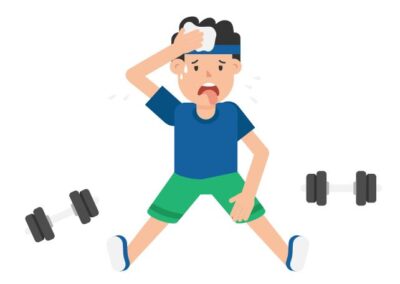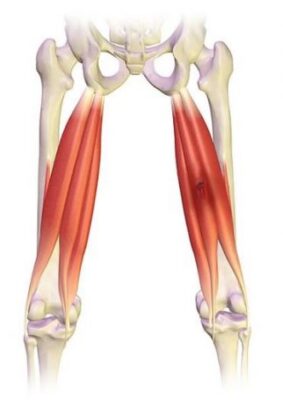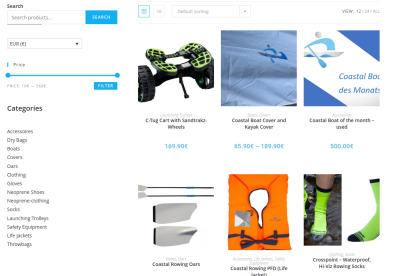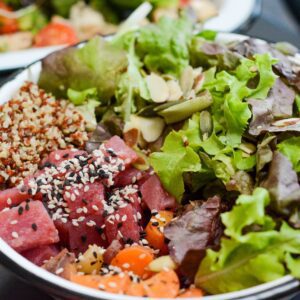When you are on the water and have covered about 50% of your distance, you know exactly what happens in 15–20 strokes – fatigue from muscle-acidification. You get tired, and your body looks for strength. All your competitors will get tired too – but that doesn’t matter for the moment. You just have to see that you get tired 10 strokes later than your opponent. An article from our partner website Rowperfect.
Fatigue due to muscle-acidification – the reasons
Are you aware of what is happening in your body while you are rowing? Why do you get tired and break down? Sports scientists define fatigue as follows: “Fatigue factors … are broadly defined as processes that lead to reversible reductions in performance in the areas of strength, endurance, coordination, and psychological readiness. These areas cannot be considered in isolation, but act more or less synergistically.”

Fatigue in the endurance area also leads to a decrease in the use of strength (strength endurance). This is usually also accompanied by negative effects on the movement process, movement efficiency decreases and accelerates fatigue in the strength endurance area. Be careful not to get sloppy. You should be careful here, especially if there are waves. So we know how critical this phase is: if the strength leaves us, it can lead to lack of coordination – and this means unclean rowing.
Fatigue due to muscle-acidification – Motivation decreases
Your motivation is going down the drain? Fatigue also affects our motivation: When your opponents pass by – how does it feel? How great is it when you fend off the opponent’s pressure? Now you realize how hard you have trained.
Decisions in rowing are often made after 1000 m or after 1600-1700 m, at a Beach Sprint on the last meters. “Who has the necessary energy now?” is often the somewhat trivial comment of the moderator. He should better ask: “Whose body produces the most lactate, and whose body tolerates this muscle-acidification in the legs best?” Because in the finish, the rowers increase the load intensity to such an extent that the working muscles can no longer be supplied with sufficient oxygen.
The result: oxygen deficiency of the muscles.
The intermediate metabolic product “lactate” first accumulates in the working muscles, then in the body. From now on, there is no longer enough supply. The oxygen in the body is no longer sufficient to meet the energy requirements of the muscles. The body switches to anaerobic metabolism (no oxygen is needed in the muscle). After a certain period of exertion, more lactate is produced than the body can break down and the muscles become over-acidified. If this happens, the muscles become tired and performance decreases. Exactly when this point is reached varies from person to person.
But enough about the fatigue due to muscle-acidification. “If the legs burn at the end of a marathon, it has nothing to do with the acidity. Here is simply a muscular fatigue,” explains Dr. Florian Porzig, team doctor of the successful Nordic Combination. We know this very well in rowing. During the final sprint. But what is the reason?
Muscle fatigue is not only caused by lactate
It is true: When a muscle is worked so hard, at some point it becomes oxygen starved and supplies the muscle with glycogen, and lactic acid is formed in the process. So the muscle does indeed become over-acidified. Sports physiologist Christina Spengler: A lot of things have not yet been fully clarified. What is known with a fair degree of certainty is that lactate is not the metabolic product responsible for muscle fatigue. Rather, other metabolites and electrolyte shifts inside and outside the muscle cells are involved. Danish coaches even talk about the targeted use of lactate to enhance performance.
A deception to support the muscle?
If we do not look at the muscle in isolation, we have to consider that processes in the brain and between brain and muscle can also reduce the contractile force of a muscle. This as well contributes to the perceived “muscle fatigue”. However, according to SPIEGEL, recent findings by sports scientists already indicate that it is not muscle undersupply that triggers fatigue. For example, most athletes still have enough “muscle fuel in reserve” for a final sprint even after a marathon. So it’s not just fatigue from over-acidification.

Researchers have now identified a messenger substance of the immune system that signals impending overexertion to the brain. The feeling of exhaustion that is then triggered reduces performance and protects the muscles from damage, reports the scientific journal “New Scientist”. The research team led by Paula Robson-Ansley of the University of Cape Town in South Africa says that the brain generates the paralyzing feeling of exhaustion in order not to strain the muscles to the limit of their performance. This is a kind of protective function: the body is protected from damage by secreting a messenger substance called interleukin-6.
A similar study, by the University of Calgary, concludes that messenger substances are formed that produce fatigue. This essentially means that the electrical signal sent by the brain, due to changes in the neuromuscular connection points, could not produce strong contractions in the muscle. The muscle is fooled – deception by the brain to save the muscle from over-exhaustion.
Fatigue due to acidity is not everything
As you could see, there are various reasons why and how the body can get tired while rowing. You should also note that, especially on the coast, you should try to avoid a strong state of fatigue. The lack of concentration here can not only lead to unclean rowing moves, but may well have more serious consequences. Especially if you are alone at the coast, you should not overdo it and know your endurance well enough to still have something in “reserve” in case the wind picks up or the waves increase.







